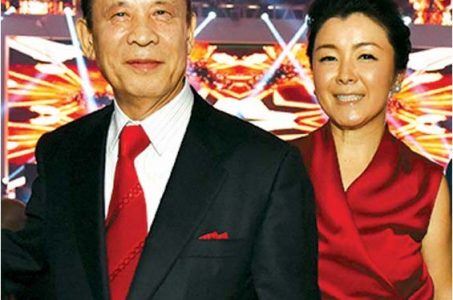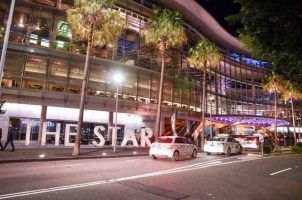Macau Court is Siding with LVS in $7.5B Breach of Contract Case Vs. Marshall Hao
Posted on: February 15, 2022, 04:10h.
Last updated on: February 15, 2022, 04:34h.
A judge in Macau’s Court of First Instance appears to be siding with Las Vegas Sands Corp’s (LVS) defense of a monstruous $7.5 billion breach-of-contract lawsuit, dating back 20 years.

Judge Seng Ioi Man said Tuesday there was no evidence that the contract in question extended beyond 15 January 2002, the date LVS claims it ended.
He also said it was impossible to know whether the joint bid for a Macau gaming license involving the plaintiff and defendant would have been successful had the relationship not ruptured.
This is the latest in a longstanding legal battle between LVS and Asian American Entertainment (AAEC), a company controled Taiwanese businessman Marshall Hao.
AAEC partnered with LVS in 2001 on a bid for a Macau casino license after the government chose to liberalize the previously monopolistic gaming sector.
In early 2002, LVS joined forces with the Galaxy Entertainment Group on a bid that ultimately won the license. In the ensuing decade, the former’s Macau operations helped it to grow into the wealthiest casino operator in the world.
Lion’s Share Claim
Hao’s company sued LVS in Nevada in 2007 claiming breach of contract. This complaint was later dismissed because of the statute of limitations. Hao sued again in Macau in 2012.
He claims that LVS would not have successfully negotiated the complex licensing process in Macau without AAEC’s consultation. He says he would have invested as much or more into the partnership as LVS did and wants at least $7.5 billion in “lost earnings.”
That’s based on 70 percent of Sands China’s profits in the gambling hub, from the launch of the Sands Macao in 2004 through to 2022, the year the license expires.
But LVS says the partnership officially ended on Jan. 15, 2002. It claims it approached AAEC shortly before that date hoping to agreement that would define their partnership moving forward.
The American company wanted to become a major shareholder in AAEC because it felt that would help grease the skids on the bid.
LVS claims AAEC rejected the overture.
He Said, Hao Said
AAEC pegs the date the relationship ended as February 2001, after LVS had held talks with Galaxy. It claims a memorandum of agreement and a letter of intent, both allegedly signed by the then-LVS president and CEO William Weidner, outlined the continuation of the relationship.
LVS has alleged these documents are falsified.
On Tuesday, Judge Seng said the court could not rule on whether the documents were falsified or not. But they should be discounted because the plaintiff could not explain when and how they were able to access these documents.
“This matter involved great financial interests. Both sides were well-educated with a lot of experiences in the business world, as well as supported by cross-jurisdiction legal teams,” Seng said, as translated by Macau Business.
“If they had really had the initiative to extend the letter of intent [at the time], it is reasonable to presume they would have established a written agreement,” Seng added.
The judge is expected to put an end to the 20-year-old dispute in the coming weeks.
Related News Articles
Most Popular
Las Vegas Overstated F1 Race’s Vegas Impact — Report
Mega Millions Reportedly Mulling Substantial Ticket Price Increase
NoMad Hotel to Check Out of Park MGM on Las Vegas Strip
Most Commented
-
End of the Line for Las Vegas Monorail
— April 5, 2024 — 90 Comments -
Mega Millions Reportedly Mulling Substantial Ticket Price Increase
— April 16, 2024 — 8 Comments -
Long Island Casino Opponents Love New York Licensing Delays
— March 27, 2024 — 5 Comments
















No comments yet